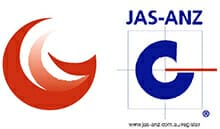You’ve likely heard of ISO 9001 certification, especially if you’re involved in the manufacturing industry, but what exactly does it mean?
Today we explore what the ISO 9001 is, what benefits it brings to the steel forging industry, and what the steps of obtaining one are. Let’s unravel the complexities of this ISO certification and how it impacts both businesses and consumers alike.
What is ISO 9001?
ISO 9001 is a globally recognized standard for quality management systems, established by the International Organization for Standardization (ISO). It serves as a benchmark for companies across various industries to ensure consistency, efficiency, and excellence in their products and services.
The core of ISO 9001 revolves around the principle of quality management, emphasising customer satisfaction, continual improvement, and adherence to regulatory requirements.
Benefits of ISO 9001 in steel forging
ISO standards hold particular significance in the custom steel forging industry where precision, quality, and reliability are not just desired but essential. Below are the benefits that the ISO 9001 certification provides to the steel forging industry.
Quality assurance and consistency
ISO 9001 certification in steel forging means that a company adheres to established protocols to ensure consistent quality. This is vital in forging, where the properties of steel, such as tensile strength, ductility, and hardness, must meet specific criteria. Consistent quality is crucial, as even minor deviations can significantly impact the performance and safety of the final product.
Process efficiency and optimization
ISO 9001 encourages continuous process improvement, a critical aspect in steel forging. It involves regular evaluation and refinement of forging processes, from material selection and heat treatment to the forging and finishing stages. This ongoing improvement cycle not only enhances product quality but also optimises operational efficiency, reducing waste and downtime.
Customer focus
A core principle of ISO 9001 is customer satisfaction, ensuring that the needs and expectations of clients are continually met. In custom steel forging, this means tailoring processes to meet specific client requirements, whether for unique component shapes, specialised steel grades, or particular mechanical properties.
Risk management and preventive action
ISO 9001’s emphasis on risk management is particularly beneficial in the steel forging industry. By identifying and addressing potential issues in the forging process, such as material defects or equipment malfunctions, companies can prevent problems before they occur. This proactive approach is crucial in an industry where flaws can have significant consequences.
Compliance and traceability
For custom steel forging, compliance with regulatory standards and traceability of products is essential. ISO 9001 helps companies establish a robust documentation process, ensuring that every product can be traced back through each step of the forging process. This is critical not only for quality control but also for meeting the regulatory requirements of various industries.
ISO certification process
The ISO 9001 certification process is a comprehensive and systematic approach designed to ensure that an organisation’s quality management system (QMS) meets the highest standards. This process is marked by rigorous quality checks and a commitment to continuous improvement. Below is an overview of the key steps involved.
- Development and implementation of a QMS: The first step towards ISO 9001 certification involves developing a QMS that aligns with the ISO 9001 standards. The organisation must document its processes, policies, and objectives, ensuring they are geared toward meeting customer requirements and enhancing satisfaction.
- Training and awareness: Employees at all levels need to be trained and made aware of the QMS. They should understand their roles and responsibilities within the system, and how they can contribute to its effectiveness and continuous improvement.
- Conducting internal audits: before undergoing external certification, organisations are required to conduct internal audits. These audits are crucial for assessing the QMS’s effectiveness and ensuring that the processes are being followed as intended. They also help identify areas for improvement.
- Management review: The top management must review the performance of the QMS at planned intervals. This review is essential to assess the system’s adequacy, suitability, and effectiveness, and to identify opportunities for improvement.
- Corrective actions: Based on the internal audits and management reviews, the organisation must take corrective actions to address any non-conformities or areas of improvement identified. This step is critical to refine the system continually.
- Choosing a certification body: Once the QMS is established and implemented, the organisation needs to select an external certification body accredited to perform ISO 9001 audits. It’s important to choose a reputable and recognized body for this purpose.
- Certification audit: The chosen certification body will conduct a formal assessment in two stages. The first stage is usually a preliminary, less formal review of the QMS, checking the readiness for the next stage. The second stage is a more detailed and formal compliance audit, assessing the QMS’s actual implementation and effectiveness against the ISO 9001 standards.
- Addressing findings: If the auditor identifies any non-compliance issues, the organisation must address these findings. They may need to make necessary changes to their processes and systems.
- Receiving certification: Once the organisation has met all the requirements, it receives ISO 9001 certification. This certification is typically valid for three years, subject to annual surveillance audits.
- Continuous improvement and surveillance audits: ISO 9001 requires organisations to continually improve their QMS. The certification body conducts surveillance audits, usually annually, to ensure ongoing compliance and continual improvement.
Our commitment to quality
As a proud holder of the ISO 9001 certification, Greg Sewell Forgings is deeply committed to maintaining the highest standards of quality in all its operations.
We take pride in offering specialised services like closed-die forging, CNC machining, and upset forging, each underpinned by a rigorous quality management system that ensures precision and excellence. Follow the link to discover our full range of services.
Our adherence to the stringent standards set by ISO not only exemplifies our dedication to consistently delivering superior products, but also reflects our deep commitment to customer satisfaction and continual improvement.
Choosing Greg Sewell Forgings means partnering with a company that is not just technically adept but also proven in providing reliable, high-quality forging solutions that our clients can trust. Get in touch today!





